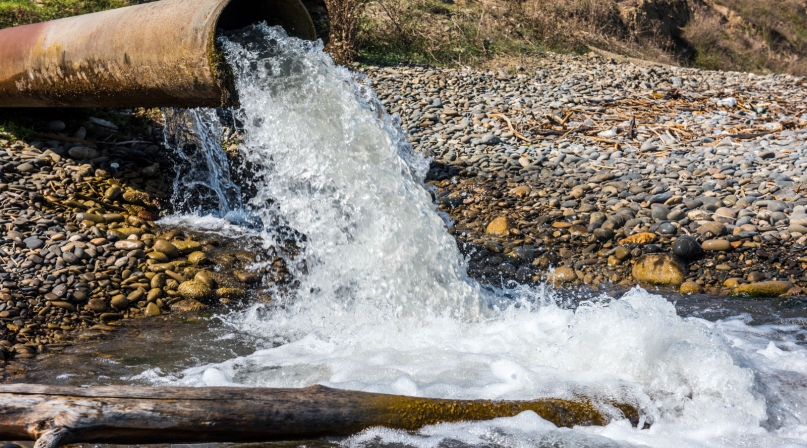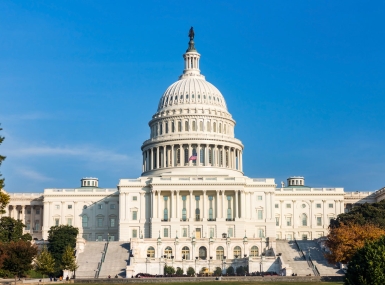House releases bipartisan water bill
Upcoming Events
Related News

House water bill omits several reforms proposed in Senate’s version
Bills addressing water infrastructure have been introduced in both the Senate and the House this month. The House released its bill, the Water Resources Development Act of 2018 (H.R. 8), May 18. Similar to the Senate version introduced earlier in the month, the House bill has bipartisan support.
Like the Senate bill, the House measure would authorize new Army Corps projects, including flood risk management in St. Tammany Parish, La. and ecosystem restoration in Madison, St. Clair and Monroe counties in Illinois. It would also reauthorize the Levee Safety Initiative and extend the National Dam Safety Program through 2023.
Similar to the Senate version, the House bill also includes a provision to study the existing cost-benefit analysis used by the Army Corps and the White House Office of Management and Budget (OMB) to determine which projects are submitted to Congress for WRDA authorization.
However, the House bill does not include many of the Senate’s proposed reforms such as the establishment of an appeals board for water storage projects and requiring Army Corps headquarters and districts to provide Congress with four-year work plans and budgets annually.
The House measure also does not address reauthorization of the Water Infrastructure Finance and Innovation Act (WIFIA), which provides low-interest loans to local governments and utilities to repair existing water and wastewater infrastructure. While both the Environmental Protection Agency (EPA) and the Army Corps have WIFIA programs, only the EPA is actively issuing loans. Finally, the House bill does not include a provision to codify EPA’s Integrated Planning (IP) policy, which would allow local governments to meet Clean Water Act mandates in a holistic and cost-effective way.
Other provisions in the House bill of interest to counties include:
- Allows use of the Harbor Maintenance Trust Fund (HMTF) budget: The House bill provides for the full use of funds from the Harbor Maintenance Trust Fund for harbor maintenance purposes. The HMTF is a tax levied against importers and domestic shippers using ports and harbors in coastal and Great Lakes areas. However, even though the HMTF has a large surplus, only a portion of its total is appropriated by Congress every year for operations and maintenance in the nation’s harbors. The Senate bill does not include this HMTF provision.
- Requires the Army Corps to engage stakeholders in new and revised guidance documents: Under the House language, the Army Corps would be compelled to publicly notice any new or revised implementation guidance for programs covered under WRDA. The provision requires the Army Corps to accept comments and recommendations for a minimum of 60 days.
- Reviews options for moving the Army Corps out of the U.S. Department of Defense (DOD): The House bill directs the National Academy of Sciences (NAS) to consult with the Army Corps and other federal agencies to study the potential consequences of moving the Army Corps’ Civil Works division out from DOD and “to a new or existing agency or sub-agency of the federal government” to carry out authorized WRDA projects and studies.”
The House language goes further than the Senate bill, which simply directs the NAS to examine the effectiveness of the current structure and streamlining opportunities.
Traditionally passed on a biennial basis, WRDA authorizes water resources studies and projects and sets policies for navigation, flood control, hydropower, recreation, water supply and emergency management for the U.S Army Corps of Engineers (Army Corps). The legislation addresses county interests related to ports, inland waterways, levees, dams, wetlands, watersheds and coastal restoration. However, due to the earmark ban in 2011, WRDA bills have become increasingly difficult to pass.
Only three WRDA-related bills — in 2007, 2014 and 2016 — have been enacted into law in the last decade. The current WRDA bill, the Water Infrastructure Improvements for the Nation (WIIN) Act, was passed into law in December 2016 and will expire at the end of 2018.
Congress must either extend WIIN or pass another authorization for projects approved under WIIN before it expires.
Attachments
Related News

U.S. House of Representatives passes SPEED Act and other permitting reform bills
On December 18, the U.S. House of Representatives passed the SPEED Act (H.R. 4776). The SPEED Act would strengthen county involvement in decision-making and make needed commonsense reforms to the federal environmental review process.

House Natural Resources Committee advances the Endangered Species Act Amendments Act of 2025
On December 17, the House Natural Resources Committee advanced the Endangered Species Act (ESA) Amendments Act of 2025 (H.R. 1897). The version passed by the committee adopted several changes from the initial bill and would address key county concerns by improving the implementation of the ESA. The legislation now awaits a floor vote before the whole U.S. House of Representatives.

Senators introduce bipartisan UPGRADE Act to support small and rural public water systems
On December 15, Sens. Lisa Blunt Rochester (D-Del.) and Roger Wicker (R-Miss.) introduced the Unincorporated Partnerships for Grant Resources, Assistance, and Drinking Water Enhancements (UPGRADE) Act (S. 3465), a bipartisan bill that would strengthen federal support for small public water systems and helps unincorporated communities access clean and affordable water.